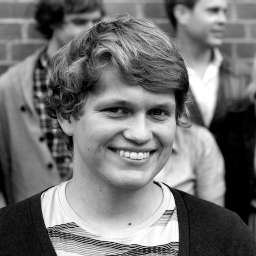Back for its fourth revival, François de Carpentries’ production of Rossini’s The Barber of Seville is starting to feel a little stale. Telling the story as a series of diary entries, the basic idea is an interesting one, yet the sparse sets require a firm directorial hand and outstanding singing. This time around, the production has neither.
De Carpentries frames the story as the sexual awakening of Rosina, embellished and viewed through the rose-tinted glasses of her own diary. It’s an interesting way of framing the opera, allowing the more outrageous episodes – Almaviva, disguised as a drunken soldier, shows up in full Rambo gear, machine gun and all – to be interpreted as teenage exaggeration. In general, this production is more concerned with laughs than prodding at a semblance of a dark underside, which by all means is a valid choice. It’s just that the humour was sorely lacking as well.
Throughout Saturday’s performance, I found myself wondering how rehearsals had been spent. The Barber of Seville is a comedy, yet it was lacking in fast-paced precision in Hilde Andersen's revival, instead offering leaden and clumsy attempts at humour, gags appearing both predictable and under-rehearsed. The singers seemed left to their own devices, and – with the very honourable exceptions of Joshua Hopkins’ Figaro and Caroline Wettergreen’s Berta – were completely lost, resorting to awkwardly generic acting and generally uninspired vocal performances.
Leading the orchestra, conductor Manlio Benzi did not have an easy time of it. Coordination between the orchestra and the singers was a constant problem, not improved by the orchestra being slightly too loud and the singers slightly too soft. The orchestra had coordination problems of their own, playing with individual tempi for much of the Act 2 storm. Although the many woodwind solos were generally quite good, there were several instances of highly dubious intonation in the upper strings, the first violins in particular.
As Count Almaviva, tenor Levy Strauss Sekgapane sang with a reedy, nasal tone, with often uncertain intonation and rhythm. The many runs, especially in his first aria, “Ecco ridente in cielo”, were smudged and unclear, and it was not until the end of the second act that his high notes sounded free and unforced. Samantha Hankey acquitted herself slightly better as Rosina but she, too, struggled with runs. Hankey’s mezzo-soprano has a gorgeous dark tint to it, but she seems better suited to less florid repertoire than Rossini heroines.
A similar feeling of just going through the motions was had from Jens-Erik Aasbø’s Don Basilio and Luciano di Pasquale’s Dr Bartolo. Aasbø’s Basilio seemed distant, “La calunnia” lacking in shape, even though he sang with his customarily robust bass. Di Pasquale’s Bartolo, similarly, was a model of genericism with few defining characteristics apart from bright red shoes and a generally unpleasant demeanour. Even though his sizeable bass-baritone sounded imposing enough when he sang with full voice, the many patter sections were considerably more problematic, with unclear enunciation and difficulty keeping up with the tempo.
Managing to lighten the mood, at least somewhat, was Joshua Hopkins’ Figaro. Singing with a robust, if somewhat inflexible, voice, Hopkins got the job done. His Figaro was perfectly charming and charismatic, but little more than that. It came as a surprise that the vocal highlight of the evening was Caroline Wettergreen’s Berta. Berta hardly offers the technical challenges of the other roles, but Wettergreen approached the small part with a clearly realised character and assured, confident singing. I could not help but wonder why she had not been cast as Rosina.




